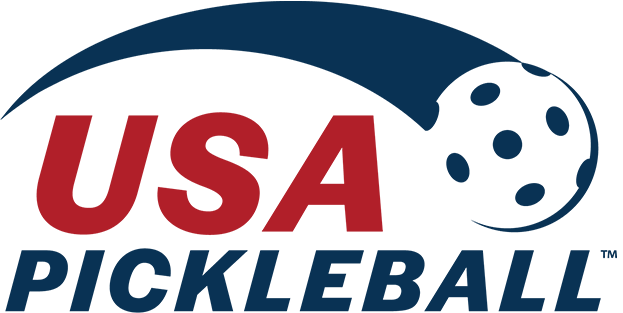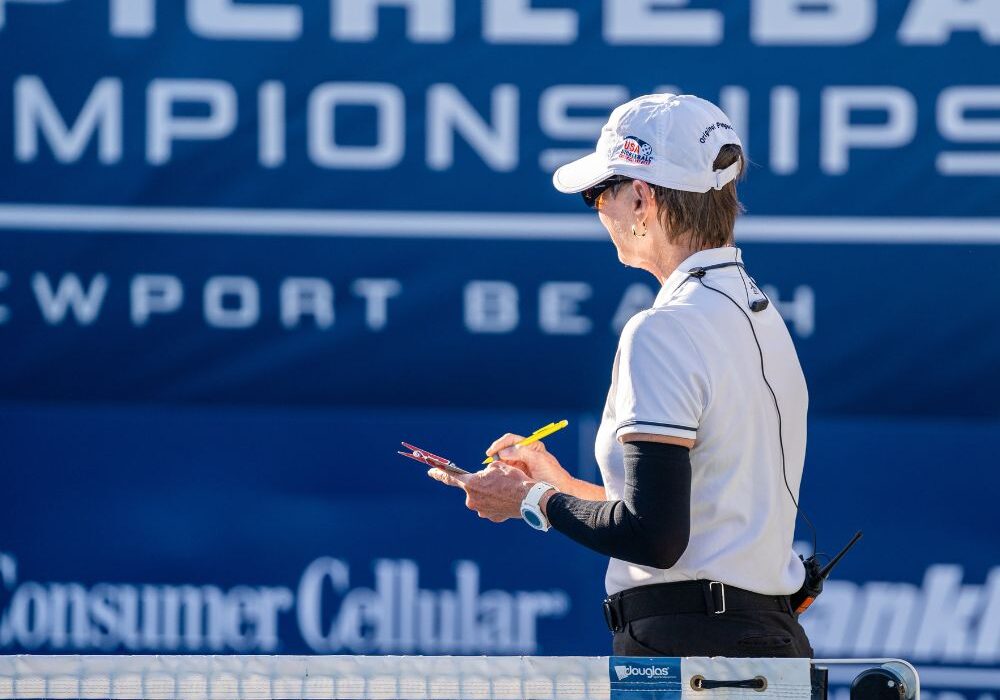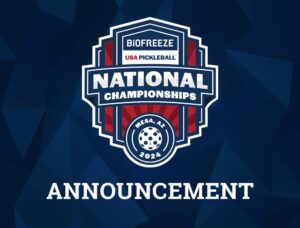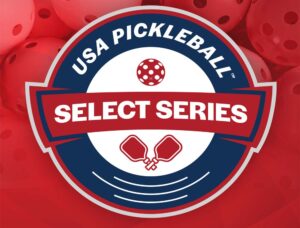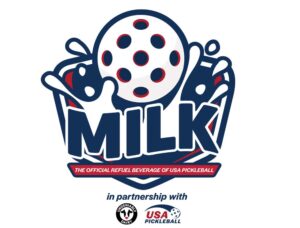Mid-Year Revisions to the 2023 USA Pickleball Rulebook
As the sport of pickleball continues to evolve, USA Pickleball is committed to providing a set of rules that best guides the game forward and facilitates the best playing experience possible at all skill levels. The USA Pickleball Board of Directors recently approved a recommendation from the USA Pickleball Rules Committee for the following rule changes to take effect for both professional and amateur players immediately.
Due to several factors, including an immediate positive impact on quality of play during the remainder of the 2023 amateur tournaments, as well as uniformity between the USA Pickleball Rulebook and the amateur and pro games, these rule revisions necessitated a mid-year implementation rather than delaying changes until 2024.
Please see below for an updated 2023 USA Pickleball Online Rulebook, editing instructions to the hardcopy version of the 2023 Rulebook, as well as a brief Q&A on these rule changes.
The following are the mid-year rule revisions to the Rulebook approved by the Board, listed in the recommended format:
Add new rule (renumber subsequent rules):
12.C.2. (Pro and Senior Pro Player Brackets) Single Elimination Without Consolation: The first player/team to score the match-winning point by at least a two-point margin wins. The final two players/teams in the winner’s bracket play for the gold/first-place and silver/second-place medals. The determination of the final standings of the remaining players/teams is left to the discretion of tournament officials.
Existing 12.C.2 becomes 12.C.3, 12.C.3 and its subsections become 12.C.4, 12.C.4 becomes 12.C.5, 12.C.5 becomes 12.C.6.
Revise existing rule:
12.G.Two-Match Minimum. In all USA PICKLEBALL-sanctioned tournaments, each entrant shall be entitled to participate in a minimum of two scheduled matches per event entered. Exception: Single Elimination Without Consolation events guarantee only 1 match per event.
Add new rules:
4.B.9. The referee will confirm and correct, if necessary, that all players are in the correct position and the correct server has the ball before calling the score.
4.B.9.a. If the referee or a player stops a rally in progress to correctly identify a player/position error, the rally shall be replayed. If a player stops a rally and incorrectly identifies a player/position error, it is a fault on the player who stopped the rally. If the referee stops a rally in progress and incorrectly identifies a player/position error, the rally shall be replayed.
4.B.9.b. If a player/position error is identified after the rally has played out, the rally shall stand.
Delete existing rule:
4.B.9 When an incorrect player serves or receives, or a player serves from an incorrect position, the referee will immediately stop play and identify the fault(s).
Delete existing rule:
4.B.10: Incorrect Player or Position. When an incorrect server or player position is discovered after a rally, game, or match has ended, the offending team can be faulted until the next serve occurs or prior to the scoresheet being returned to the tournament operation’s desk. A point scored during the rally by the offending team will not count. Any previous points scored by the incorrect server or with players in the incorrect positions will stand. After a match is completed, an incorrect player or position error may not be corrected after the scoresheet has been returned to tournament operations personnel.
Delete existing rule:
4.M.1. The server serves from the incorrect serving area.
Delete existing rule:
4.M.2. The incorrect player serves the ball.
Delete existing rule:
4.N.1. The incorrect player returns the serve.
Revise existing rule:
8.E. Other than non-volley zone violations, a fault may only be committed when the ball is live. The penalty for a fault (other than non-volley zone faults) is normally enforced the moment it is identified (e.g., incorrect player/position, distractions, double bounces, etc.) but may also be enforced any time before the next serve occurs.
Revise existing rule:
13.G.3.c. If a referee issues a technical foul, one point shall be removed from the score of the offending player/team unless their score is zero, in which case a point shall be added to the score of the opposing side. After the point is removed or awarded, the player or team losing or awarded the point must move on their own to the correct position(s) that reflects their score.
The USA Pickleball Online Rulebook has been amended and an updated version can be found here. For those that have a print copy of the 2023 Rulebook, please make the necessary manual changes. The recommended editing process is as follows:
- Insert the additions, revisions, and deletions where they occur in the Rulebook.
- New rules – Insert an instruction line in italics “Add new rule:” Insert the new rule on a new line and show the text underlined.
- Deleted rules: Insert an instruction line in italics “Delete existing rule:” On a new line show the existing rule struck out.
- Revise rules: Insert and instruction line in italics “Revise existing rule:” On a new line show the revisions to the existing text using legislative format.
Please see below for a brief Q&A on these rule changes:
Q: Why are these new rules being implemented?
A: USA Pickleball believes that a rule violation should not be a primary driver behind a point being awarded. It is better for the sport and the flow of play for a competitive rally to take place with the point or side-out being awarded to the individual or team with the winning shot.
Q: Have mid-year rule changes been implemented in the past?
A: Yes, there have multiple occasions where mid-year rule changes have been necessary in previous years. As the National Governing Body, USA Pickleball operates in the best interests of the millions of players across the United States. Rule changes are designed to enhance and improve the playing experience at all levels.
Q: What about the argument that referees are coaching the players when they place them in the correct position?
A: There is little difference between a player asking the referee, “Am I the correct server?” and the referee (or opponent) proactively pointing out the incorrect position(s).
Referees experience players repeatedly asking if they are in the correct position, who is the correct server, etc. This slows down the game, and sometimes the tournament, because each time they are asked this question, the referee must raise his/her hand, step forward, and answer the question before he/she can call the score. Correcting the players at the outset removes this posturing and questioning.
This rule change will assist players who struggle (for whatever reason) with their positioning on the court. Additionally, this change will enhance the player experience by mitigating negative outcomes from any unintended errors.
Q: How will these rule changes affect the spectator experience of the pro sport?
A: These rules will result in better streaming and television network coverage, which in turn will lead to an enhanced spectator experience. Pickleball is now emerging as an increasingly popular spectator sport and every time a player asks about his/her positioning, it takes away from the excitement and the televised rallies. This is not ideal for the sport and was strongly suggested by networks that such hindrances be avoided. The delays can also negatively impact match timing, broadcast commercials, and ultimately, sponsorships.
Q: How does this affect referees and the way they officiate the game?
A: One of the primary goals of USA Pickleball-credentialed referees is for players to leave the court feeling that, win or lose, the match was played fairly and they had a positive experience overall. USA Pickleball believes these rule changes will help accomplish this.
